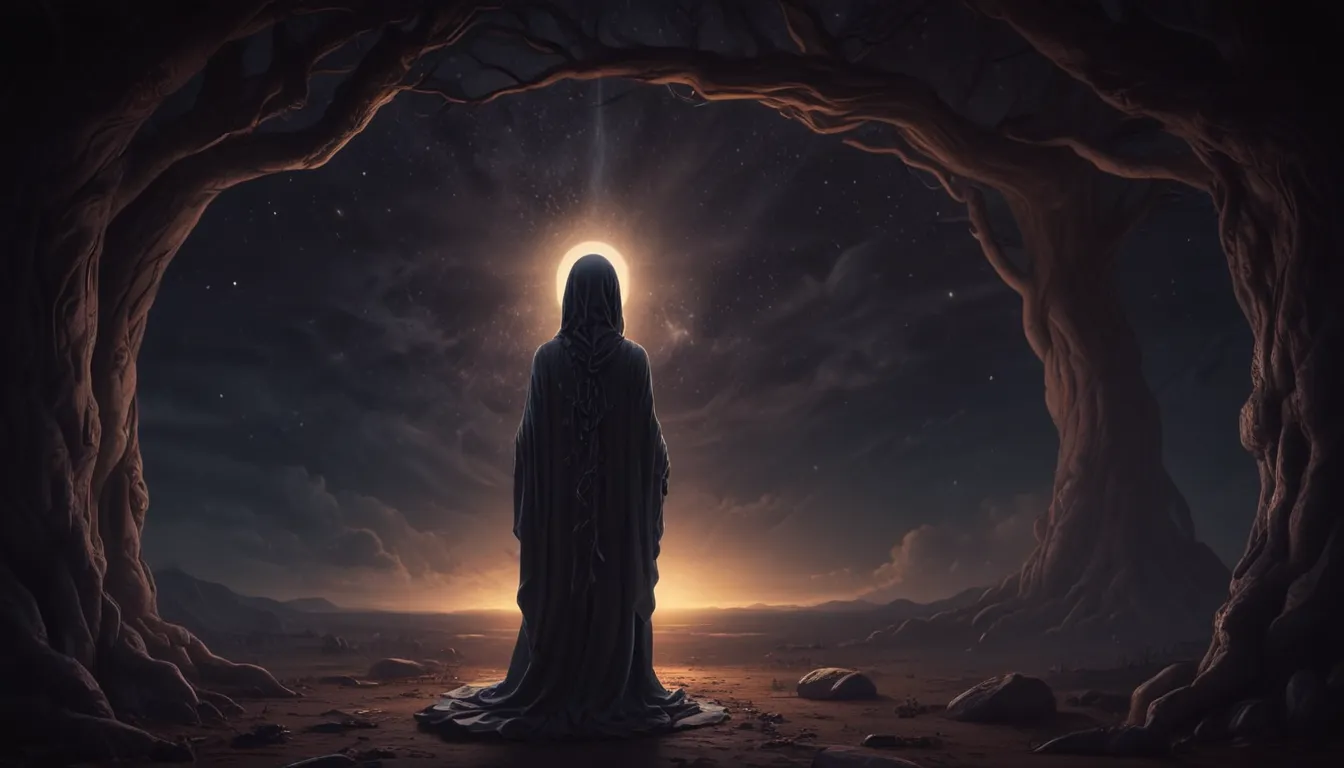
Darkness has been a subject of spiritual contemplation for centuries. It’s often associated with negative connotations such as fear, uncertainty, and evil. However, in many spiritual traditions, darkness holds a deeper meaning that goes beyond these common associations. In this post, we will explore the spiritual meaning of darkness and how it can be understood from various perspectives.
Darkness as a Symbol of Unconsciousness or Spiritual Growth
In many spiritual traditions, darkness is seen as a symbol of the unconscious mind. This can represent the hidden aspects of our personality that we may not be aware of. These parts of ourselves can hold important wisdom and insights that can guide us on our spiritual journey. By acknowledging and embracing these darker aspects, we open ourselves up to greater growth and understanding.
In this sense, darkness is often associated with the process of spiritual transformation. It’s through facing and integrating these hidden parts of ourselves that we can truly grow and evolve as individuals. The journey into the darkness represents a willingness to confront our fears and insecurities head-on.
Darkness as a Symbol of Transformation and Rebirth
In many cultures, darkness is seen as a time of transformation and rebirth. This is particularly evident in the celebration of winter solstice traditions like Yule or Hanukkah, where the return of light after the longest night of the year symbolizes new beginnings and renewal.
From a spiritual perspective, the darkness can represent a period of introspection and self-reflection, during which we are able to let go of old patterns and beliefs that no longer serve us. This process of release and transformation prepares us for the rebirth of new ideas and perspectives as the light returns.
Darkness in Mystical Experiences
In some mystical traditions, darkness is seen as a doorway to divine experiences or spiritual enlightenment. For example, in many forms of meditation and contemplative practices, practitioners are encouraged to enter into a state of deep stillness, often described as “sitting in the darkness.” In this state, they may experience profound insights and connections with something greater than themselves.
The spiritual meaning of darkness is also evident in certain rituals and ceremonies, such as those involving cave exploration or vision quests. These experiences can help individuals tap into their inner wisdom and gain a deeper understanding of their place in the world.
Darkness as a Symbol of the Divine Feminine
In many spiritual traditions, darkness is associated with the divine feminine. This is particularly true in Goddess-centered religions like Wicca and Neo-Paganism, where the Goddess is often depicted as a powerful force of darkness and creation.
From this perspective, darkness represents the nurturing, receptive aspect of the divine, as opposed to the light’s active, masculine energy. This balance between light and dark is essential for maintaining harmony in both our personal lives and the wider world.
Darkness and Shadow Work
Shadow work is a practice that involves exploring and integrating the hidden aspects of ourselves – often those parts we find uncomfortable or shameful. By acknowledging these shadows, we can transform them into sources of strength and wisdom rather than allowing them to control us from behind the scenes.
In this sense, darkness becomes a tool for self-discovery and personal growth. It encourages us to confront our fears and insecurities head-on, knowing that by doing so, we are strengthening ourselves and becoming more whole individuals.
Conclusion
The spiritual meaning of darkness is complex and multifaceted. It can represent the hidden aspects of ourselves, a time of transformation and rebirth, a doorway to divine experiences, the feminine aspect of the divine, or a tool for personal growth through shadow work.
Ultimately, understanding the spiritual meaning of darkness requires an openness to exploring our own inner worlds and a willingness to confront those aspects of ourselves that we may find uncomfortable or frightening. By doing so, we can tap into powerful sources of wisdom and growth, ultimately leading us toward greater self-awareness and spiritual evolution.





